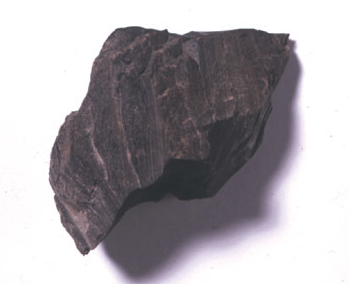 How big does Shale have to get before our policymakers wake up to its implications? There is an Energy Summit
in No.10 today where Chris Huhne wants to focus on the need “to help consumers save money on their gas and electricity bills”. A preview interview on the Today programme underlined the
dire situation. First, Huhne was not asked about how his own green regulations have massively contributed to the problem. Then, the managing director of British Gas was invited on to say that
“unless someone discovers huge amounts of gas and imports it into the UK…”. And, yet, one of BG’s rivals recently discovered 200 trillion cubic feet of gas near
Blackpool. As Matt Ridley says in this week’s Spectator, that’s enough to keep the entire British economy going for many decades. And it doesn’t even need importing.
How big does Shale have to get before our policymakers wake up to its implications? There is an Energy Summit
in No.10 today where Chris Huhne wants to focus on the need “to help consumers save money on their gas and electricity bills”. A preview interview on the Today programme underlined the
dire situation. First, Huhne was not asked about how his own green regulations have massively contributed to the problem. Then, the managing director of British Gas was invited on to say that
“unless someone discovers huge amounts of gas and imports it into the UK…”. And, yet, one of BG’s rivals recently discovered 200 trillion cubic feet of gas near
Blackpool. As Matt Ridley says in this week’s Spectator, that’s enough to keep the entire British economy going for many decades. And it doesn’t even need importing.
It’s being kept off the agenda because the big energy companies see this as competition from upstarts. Green warriors don’t want to know because it confounds their careful predictions
of apocalypse — and destroys the rationale for subsidising hugely expensive renewable energy. When oil was discovered in the North Sea in the 1970s, Wilson’s government was delighted:
here was a cash boon that would transform Britain. The discovery of Shale in Britain is being studiously ignored, because it goes against the conventional wisdom on green energy. Ridley’s
brilliant feature gives you a full briefing. He challenges the conventional wisdom which I expect will be echoing around the No.10 discussion today. Here are some extracts:
I apologise to subscribers: you’ll have read all this. Non-subscribers, to join us from £1 a week click here.What’s that you say? Gas is running out? Have you not heard the news? It’s not. Till five years ago gas was the fuel everybody thought would run out first, before oil and coal. America was getting so worried even Alan Greenspan told it to start building gas import terminals, which it did. They are now being mothballed, or turned into export terminals… The impact of shale gas in America is huge. Gas prices have decoupled from oil prices and are half what they are in Europe. Chemical companies, which use gas as a feedstock, are rushing back from the Persian Gulf to the Gulf of Mexico. Cities are converting their bus fleets to gas. Coal projects are being shelved; nuclear ones abandoned. The best thing about cheap gas is whom it annoys. The Russians and the Iranians hate it because they thought they were going to corner the gas market in the coming decades. The greens hate it because it destroys their argument that fossil fuels are going to get more and more costly till even wind and solar power are competitive. The nuclear industry ditto. The coal industry will be a big loser (incidentally, as somebody who gets some income from coal, I declare that writing this article is against my vested interest). Little wonder a furious attempt to blacken shale gas’s reputation is under way, driven by an unlikely alliance of big green, big coal, big nuclear and conventional gas producers. The environmental objections to shale gas are almost comically fabricated or exaggerated. Hydraulic fracturing or fracking uses 99.86% water and sand, the rest being a dilute solution of a few chemicals of the kind you find beneath your kitchen sink. Like Japanese soldiers hiding in the jungle decades after the war was over, our political masters have apparently not heard the news. David Cameron and Chris Huhne are still insisting that the future belongs to renewables. They are still signing contracts on your behalf guaranteeing huge incomes to landowners and power companies, and guaranteeing thereby the destruction of landscapes and jobs. The government’s “green” subsidies are costing the average small business £250,000 a year. That’s ten jobs per firm. Making energy cheap is – as the industrial revolution proved – the quickest way to create jobs; making it expensive is the quickest way to lose them.
PS: This ties in with recent focus on lobbying. The exclusion of Shale is an example of what happens when corporate interests frame public debate. The powerful renewables lobby and big energy companies combine to brief ministers and journalists, and thus set the parameters of debate. So pieces about Shale are run, but separately. Radio Four did an interesting documentary on it here, Time magazine has run a cover story on it, but still Shale is not an integral part of the energy debate.







Comments